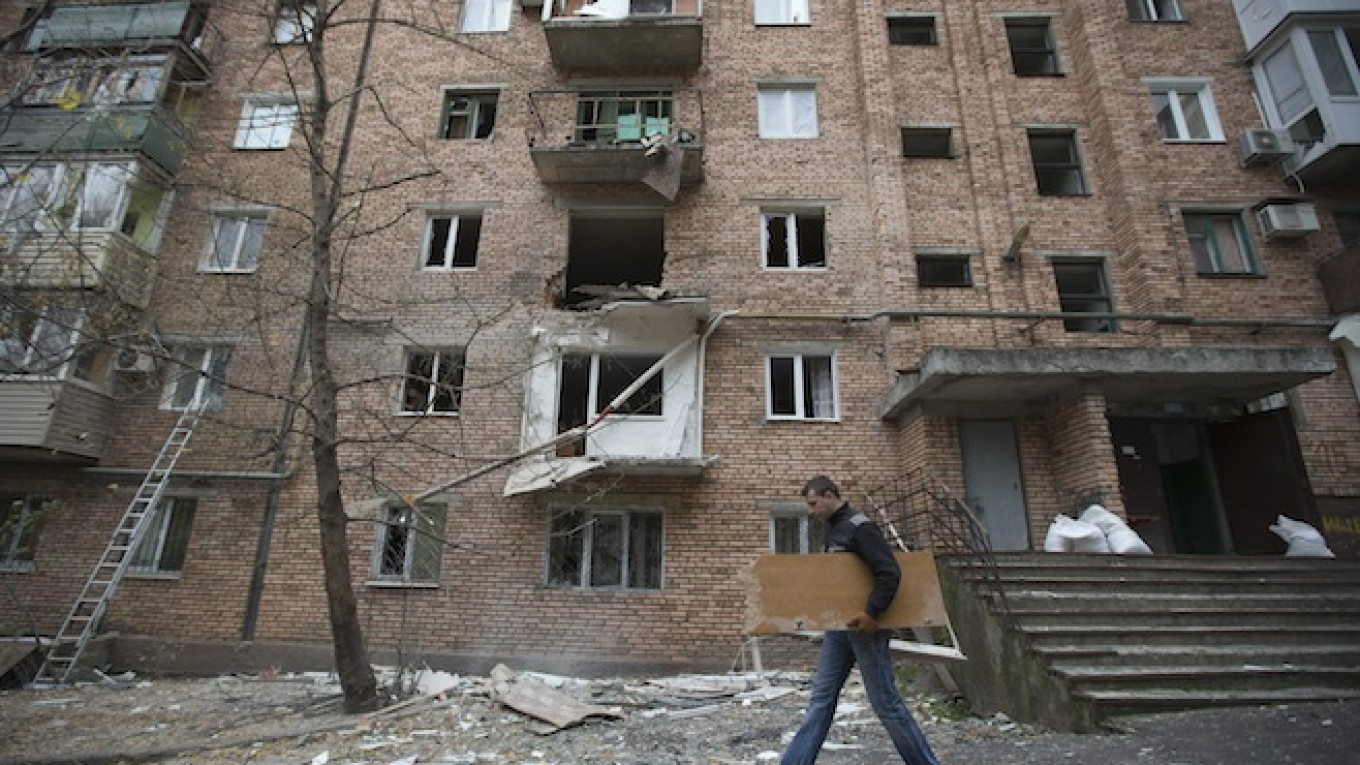Four civilians were killed and nine wounded by shrapnel during fighting on Saturday and Sunday in eastern Ukraine's separatist stronghold city of Donetsk, local officials said.
Pro-Russian rebels and government forces have continued to clash on the city's outskirts despite a Sept. 5 cease-fire accord that has generally contained violence in other parts of the country's contested east.
Speaking at a daily security briefing in Kiev on Sunday, military spokesman Andriy Lysenko said 13 Ukrainian servicemen had been wounded in the past 24 hours in fighting in the east. There was no immediate word on casualties among rebel fighters.
The sounds of mortar fire and rocket launchers thundered through central Donetsk throughout Saturday night as fighting went on several kilometers (miles) away.
Residential areas of Donetsk are often caught in crossfire as they right sit next to the city airport, a strategic and symbolic target that neither side has been able to take full control of during a prolonged stand-off.
Fighting around the airport picked up towards the end of the week as world leaders — including Russian President Vladimir Putin and Ukrainian President Petro Poroshenko — discussed the crisis during talks in Italy. They made little progress on ways to stop the violence.
Kiev and the West accuse Russia of fanning the armed conflict in eastern Ukraine. They have imposed sanctions on Moscow, who they see as guilty of providing support, including arms and troop reinforcements, to the rebellion.
Moscow shares the separatists' dislike of Kiev's pro-Western government, but denies playing a role in the armed conflict. However, low-ranking separatist fighters on the ground sometimes admit the presence of Russian troops in eastern Ukraine.
A Message from The Moscow Times:
Dear readers,
We are facing unprecedented challenges. Russia's Prosecutor General's Office has designated The Moscow Times as an "undesirable" organization, criminalizing our work and putting our staff at risk of prosecution. This follows our earlier unjust labeling as a "foreign agent."
These actions are direct attempts to silence independent journalism in Russia. The authorities claim our work "discredits the decisions of the Russian leadership." We see things differently: we strive to provide accurate, unbiased reporting on Russia.
We, the journalists of The Moscow Times, refuse to be silenced. But to continue our work, we need your help.
Your support, no matter how small, makes a world of difference. If you can, please support us monthly starting from just $2. It's quick to set up, and every contribution makes a significant impact.
By supporting The Moscow Times, you're defending open, independent journalism in the face of repression. Thank you for standing with us.
Remind me later.






